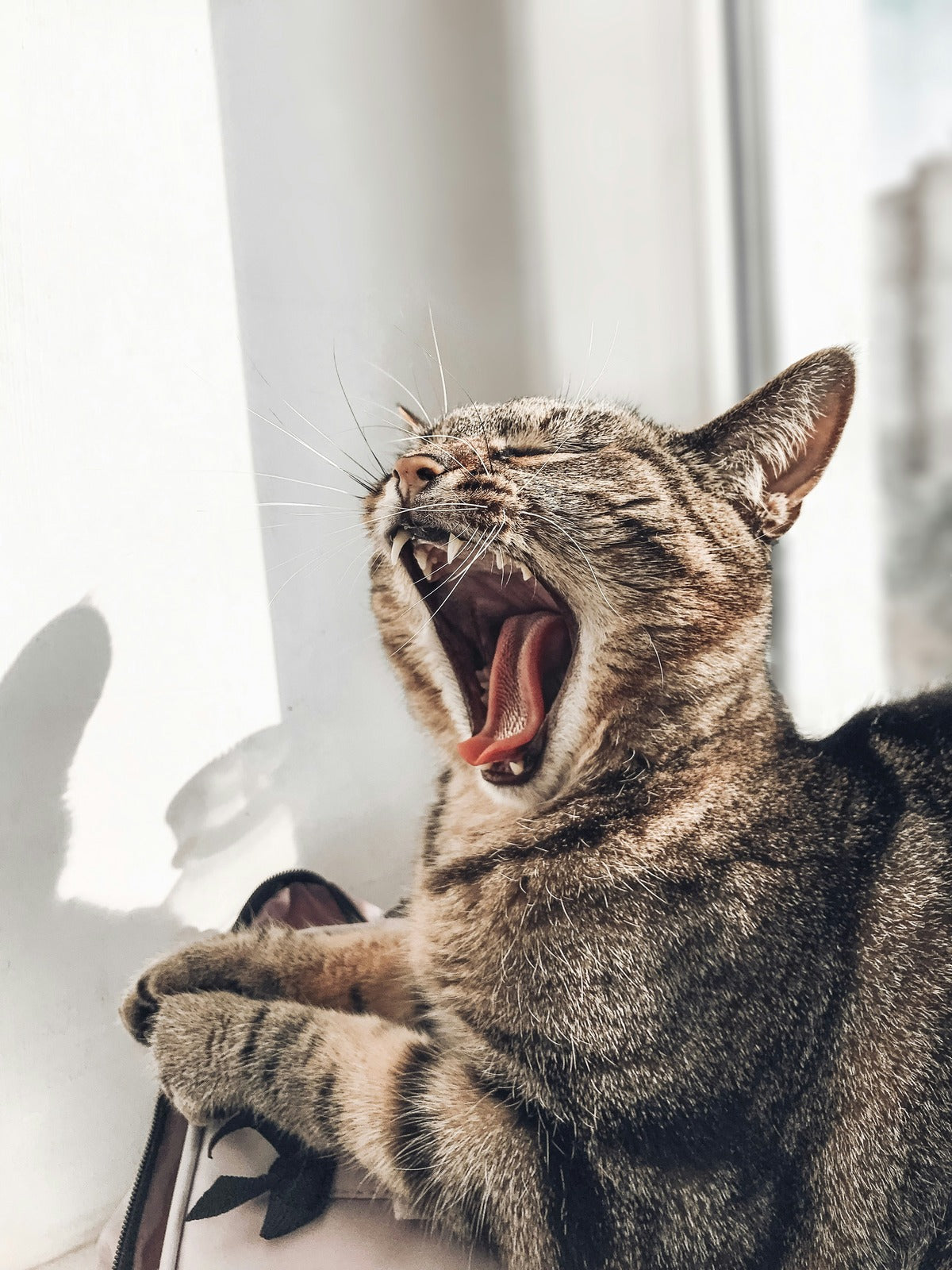Is Dental Care Important for My Pet?
Learn why dental care is essential for your pet's health, with tips on maintaining their oral hygiene and preventing common dental diseases.
While you may remember to keep your dog or cat’s vaccines up to date or take them to the vet for their annual exam, there may be one component of your pet’s health you’re missing — their dental care. Dental health is just as important for our pets as it is for humans, though many pets don’t get the same level of care as people do by seeing a dentist every six months.
Dental disease is one of the most common issues seen by veterinarians. Over 80% of dogs and cats have some form of dental disease by the age of three. Luckily, there’s a lot you can do to keep your pet’s teeth healthy — both with regular dental cleanings from your vet, and with care at home. Here’s why dental care is so important.
Your Pet’s Teeth and Gums
Your pet’s teeth are probably the part of their oral health you think about the most, especially since that’s what’s easiest to see when your dog or cat is munching on a treat or their food. It’s easy to spot dental decay — usually in the form of plaque that sticks to the teeth. As the plaque hardens, it turns into tartar, or the hard, discolored buildup you can spot along your pet’s gumline. Flat-nosed pets like Persian cats and Pugs are most at risk, due to their shorter snouts and crowded teeth, but any pet can be affected.
However, dental decay is often caused by issues in the rest of your pet’s mouth, on the tissues that make up the periodontium. This includes the gums, the cementum that covers tooth roots, the ligaments that attach the teeth to bone, and the bone surrounding your pet’s teeth. Gingivitis occurs when the gums are inflamed, and periodontal disease occurs when this inflammation spreads to the other tissues. As periodontal disease progresses, it can lead to tooth decay.
Photo by Lucas Pezeta: https://www.pexels.com/photo/close-up-shot-of-a-person-feeding-a-tabby-cat-9566276/
Your Pet’s Overall Oral Health
Your pet’s teeth and gums aren’t the only aspects of oral health, however. The mouth also houses a microbiome similar to that found in your dog or cat’s GI tract and on their skin. In fact, the oral microbiome is the second-largest population of good bacteria in their body. They coat your pet’s gums, tongue, and teeth to help protect against tooth decay and disease. The balance of these bacteria can affect your pet’s teeth and gums, as well as their overall health.
If your pet is suffering from dental disease, you may notice specific symptoms. They can include bad breath, discolored or loose teeth, and tartar on the teeth. As problems progress, your pet may drool or have trouble keeping food in their mouth. Worsening symptoms may include bleeding of the gums or your pet pawing at their mouth in pain. They may also shy away from being touched around the face, or stop eating entirely if things get too bad.
How Oral Health Affects the Rest of Your Pet’s Body
Supplements are always a great way to boost your pet’s overall health. Multivitamins, like Fera Pets Whole-Food Multivitamin Topper, can promote overall good health, while Fera Pets Immune Goat Milk can help the immune system function at its best. However, maintaining good oral health is another way to keep their entire body at its healthiest.
Beyond dental disease, too much bad bacteria and tooth decay in your pet’s mouth can affect the rest of their body. Bacteria can break free and spread through your pet’s bloodstream, leading to problems with their heart, kidneys, liver, and brain. This can lead to secondary infections and dysbiosis of other body systems, too. In extreme cases, your pet’s bad oral health can cause cardiovascular disease, respiratory illnesses, and even affect immune function. B
The Benefits of Routine Dental Care at Your Vet
Knowing what can go wrong with poor oral health is only one aspect of their care. Luckily, there are a lot of steps you can take to protect your pet’s teeth and gums before they cause full-body harm or advanced dental disease. And, regular dental care from your veterinarian can decrease the morbidity and mortality rates of pets with periodontal disease — ensuring your pet stays healthier and lives longer.
Your vet will likely recommend annual dental cleanings. This includes putting your pet under anesthesia to help reduce stress, and gently scaling, polishing, and removing any plaque or tartar from their teeth. In addition, your vet can take dental X-rays to check for any broken or infected teeth, remove them, and provide medications to help your pet recover quickly. Lastly, they can recommend at-home products to help ensure your pet’s teeth stay healthy between cleanings.
At-home Dental Care for Good Health
The best thing you can do to keep your dog or cat healthy is to take care of their teeth at home. Brushing your pet’s teeth with a pet-safe toothpaste and toothbrush can reduce the amount of plaque buildup on the teeth and help freshen breath. It’s best to avoid human toothpastes, as they contain ingredients such as fluoride and xylitol which are toxic if ingested by dogs and cats.
While daily brushing is obviously the best way to keep teeth healthy, some pets can be finicky, or hate having their mouth touched — especially if they’ve had pain from dental issues in the past. Luckily, there are a variety of products that can help reduce tartar buildup between cleanings. These include dental powders, water additives, chew toys, prescription foods, and supplements. Fera Pets Dental Support is a great way to freshen your pet’s breath while reducing inflammation, boosting the immune system, and providing a host of healthy bacteria to rebalance the oral microbiome.
Good dental care is just another important aspect of keeping your pet healthy. In addition to wholesome food, health-boosting supplements, and routine veterinary care, making sure your dog or cat’s teeth and gums are doing well can ensure that they stay feeling their best.
Sources:
[1] https://embarkvet.com/resources/bacteria-in-dogs-mouth-dog-oral-health/
[2] https://www.nature.com/articles/s41392-022-00974-4
[3] https://vcahospitals.com/know-your-pet/dental-disease-in-dogs
[4] https://www.petmd.com/dog/conditions/mouth/dental-issues-dogs
[5] https://www.rspcapetinsurance.org.au/pet-care/cat-care/guide-to-cat-dental-care




